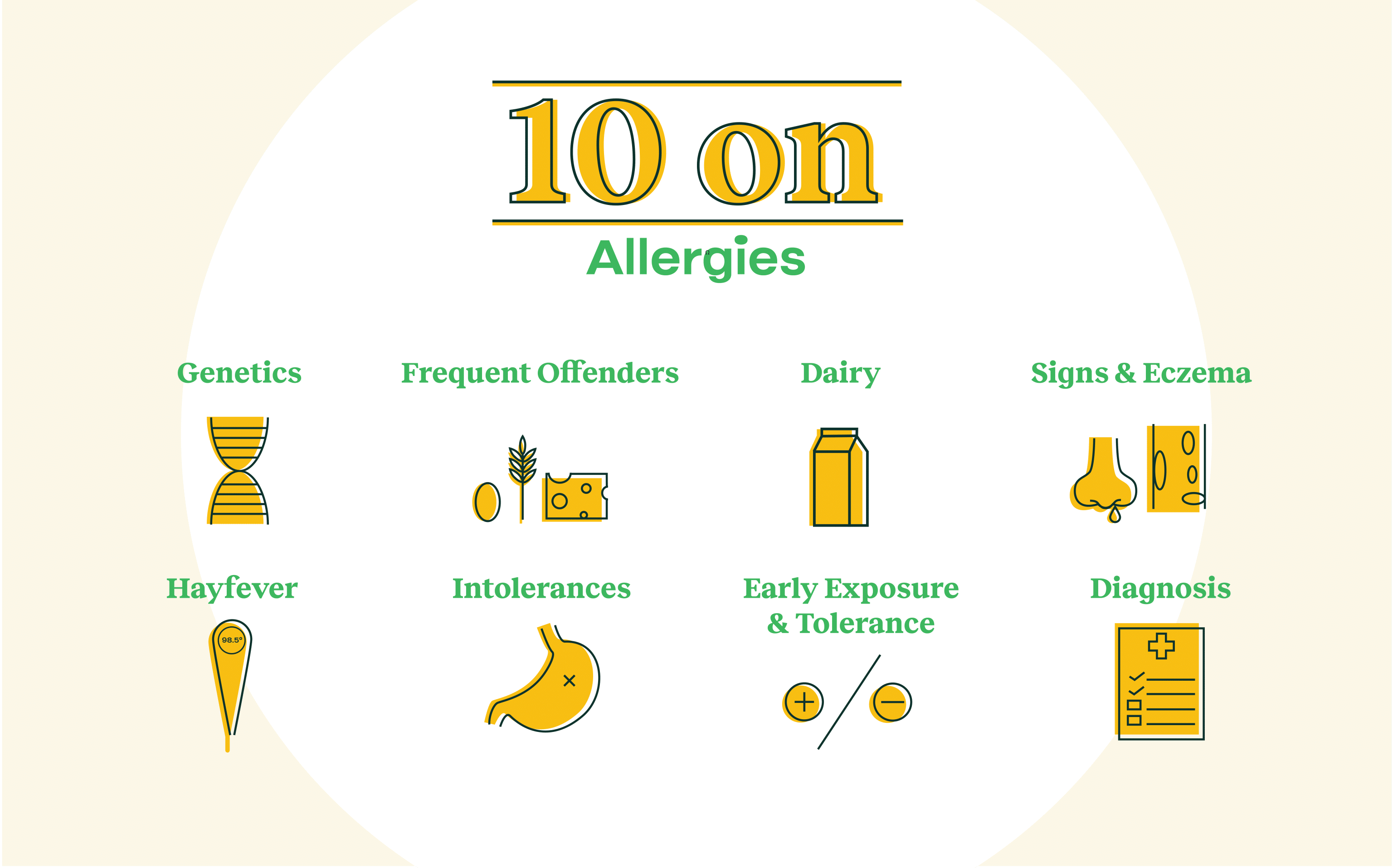We are proud to say that these posts are not sponsored. Our editorial team of Bobbie moms and writers personally select each featured product. If you buy something through our links, we may earn an affiliate commission, at no cost to you.
Food allergies are becoming more common worldwide. Food brands are creating baby foods especially to help overcome allergies. Here are 10 things to know about allergies in babies and children:
1-Allergies and genetics
Allergies are often hereditary. But don’t worry! Kids aren’t guaranteed to develop the same allergies as their parents.
2-What are the most frequent offenders when it comes to kids’ allergies?
The most common food allergens are milk, egg, wheat, soy, peanut, tree nuts, fish and shellfish.
3-What about dairy and allergies?
Some infants’ immune systems react negatively to proteins in cow’s milk. Symptoms can occur within minutes or hours of feeding. Dairy and allergies is a thing, but there are workarounds and most children grow out of this allergy by age 5.
4-Signs of allergies in children
Symptoms of allergies can include skin reactions, digestive problems, congestion, or eczema that won’t heal with treatment. Anaphylaxis is rare in babies but is almost always due to cow’s milk protein allergy.
5-How to treat eczema in kids
A result of too few fatty cells called ceramides, eczema causes the skin to lose water and become very dry. Moisturizing at least twice daily with fragrance-free creams or petroleum jelly (Vaseline) can help but seek out a pediatric dermatologist if possible.
6-Do kids get hayfever?
Seasonal allergies like hayfever typically don’t appear in children until 2 to 5 years of age.
7-Food intolerances in children
Unlike food allergies, symptoms of food intolerances are generally less serious and often limited to digestive problems in infants.
8-Early exposure is beneficial
A growing body of evidence suggests that early introduction of foods such as peanuts, fish, and eggs (at an appropriate age) might actually be beneficial in preventing food allergies and that delaying food introduction might contribute to allergic disease.
9-Building tolerance can help
A recent study found it is possible to slowly build up a tolerance to peanuts which could significantly reduce the risk of a life-threatening allergic reaction.
10-Diagnosis of allergies in children
Some allergies are harder to identify. If your child has cold-like symptoms lasting longer than two weeks or develops a “cold” at the same time every year, talk with your doctor, who might refer you to an allergist to conduct skin tests.
Need more useful info from our 10:On series? Check out tips regarding baby gas, baby poop and more!

